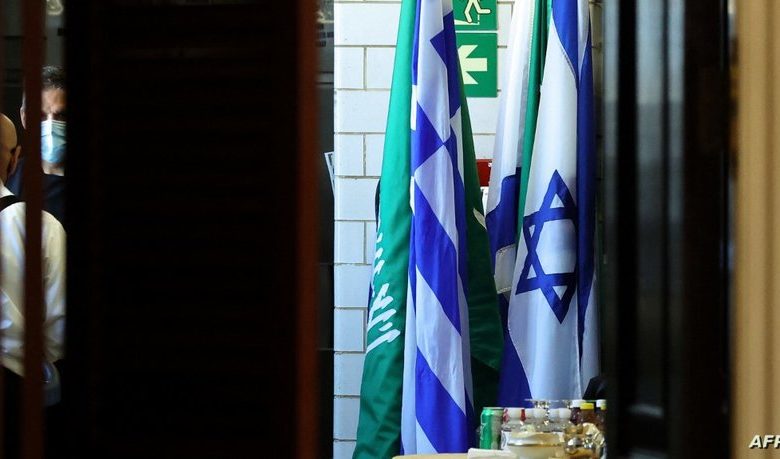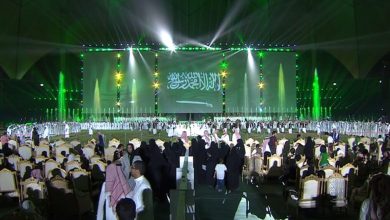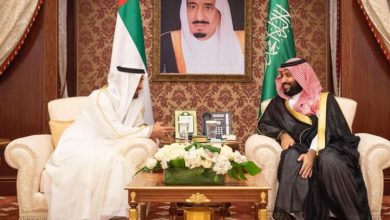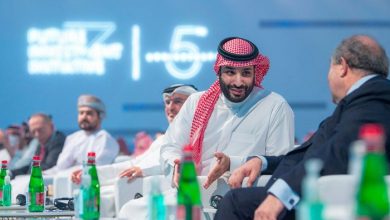Signs of Imminent Public Normalization Between Saudi Arabia and Israel Emerge

Following ongoing and recent American mediation, indications of an imminent public normalization between the Saudi Arabian regime and Israel are steadily growing. President Joe Biden made statements suggesting that an agreement might be in the works after his National Security Advisor held talks with Saudi officials in Jeddah to explore the possibility of normalizing relations between the Kingdom and Israel.
During an event held in Freeport, Maine, where he addressed his reelection campaign supporters, President Biden hinted at a potential rapprochement, stating that there might be “progress underway” concerning the two countries’ relations, according to Reuters.
Biden did not specify the details of the potential agreement, and American officials have been striving for months to reach what could be a historic deal between Saudi Arabia and Israel.
Thomas Friedman, a columnist for The New York Times, mentioned in an article published on Thursday that Biden is considering whether to proceed with a security agreement between the United States and Saudi Arabia, which includes the normalization of relations between the Kingdom and Israel.
Meanwhile, White House officials confirmed that Jake Sullivan, the U.S. National Security Advisor and one of Biden’s most trusted aides, was in Jeddah this week, discussing the possibility of a normalization agreement with Saudi Crown Prince Mohammed bin Salman. American officials believe a deal between Israel and Saudi Arabia is possible following the Trump administration’s success in brokering similar agreements between Israel and Morocco, Sudan, Bahrain, and the United Arab Emirates.
The Guardian highlighted that Sullivan held talks with Crown Prince Mohammed bin Salman in Jeddah, which is seen as an ambitious and far-reaching diplomatic attempt in the region. The White House stated that Sullivan and the Crown Prince discussed “initiatives to promote a more peaceful and secure Middle East, one that is more prosperous and interconnected with the world.”
Based on an interview with Joe Biden last week, Thomas Friedman believes that Sullivan’s visit to Jeddah was to “explore the possibility of some kind of U.S.-Saudi-Israeli-Palestinian understanding.”
According to The Guardian, the potential deal would involve a significant package comprising a U.S.-Saudi security agreement and diplomatic normalization between Saudi Arabia and Israel. As part of the agreement, Israel would receive recognition while Washington would press for some improvement in the plight of Palestinians in the occupied territories, such as a halt to Jewish settlements and a commitment not to annex the West Bank.
Friedman added that Biden had not made a decision yet, and the talks in Jeddah were exploratory. He also pointed out that any deal of this nature would be “time-consuming, difficult, and complex.”
Bruce Riedel, a former CIA analyst for Middle Eastern affairs and White House advisor, stated that such a multifaceted agreement would be politically challenging. “The Saudis don’t want Joe Biden re-elected. They prefer Donald Trump back in the White House,” said Riedel, who believes that they have never questioned him on human rights issues, he backed the Yemen war 100%, and hasn’t done anything for them since the killing of Jamal Khashoggi [Saudi Arabian columnist for The Washington Post and dissident].
Additionally, Senate approval for a security agreement with Saudi Arabia would be challenging. Republicans would not be willing to help Biden achieve diplomatic progress, and most Democrats would resist commitments to Saudi ownership given their poor human rights record and their demands for significant gains for Palestinians, which the right-wing government of Benjamin Netanyahu would not accept.
Khaled al-Jundi, a Middle East expert at the Middle East Institute, stated that extremists in Netanyahu’s government would “shoot down” proposals for freezing settlements and transferring lands within the West Bank to Palestinian Authority control, let alone taking essential steps towards a two-state solution, which is simply off the table.
The potential normalization between Saudi Arabia and Israel remains a complex and delicate issue, with numerous political challenges to overcome. Both sides are carefully considering their positions, aware of the potential domestic and international implications of such a groundbreaking diplomatic move. However, the persistence of American mediation and ongoing dialogues indicate that a significant shift in relations may be on the horizon.
Thomas Friedman stated that the Saudi demands would include guarantees that the United States would defend the Kingdom if it came under attack and that Washington would allow a Saudi civilian nuclear program monitored by the United States. Additionally, the Kingdom could purchase advanced American air defence systems.
Matt Duss, the former foreign policy advisor to Senator Bernie Sanders, described the first Saudi request as “not a beginner,” while the second and third requests as “terrible ideas.” Duss commented on social media, saying, “Biden is weighing a historic global bet.”
Kristen Fontenrose, the former Gulf region director at the National Security Council during the Trump administration, was also pessimistic about the chances of success. She stated, “I expect the Palestinian Authority to reject recognition of a Saudi-Israeli peace agreement… The Israeli government rejects any commitment to not annexing ever. The U.S. Congress rejects a collective defence agreement with Saudi Arabia.”
Fontenrose added that the Saudi leadership rejects publicly agreeing to not arm its nuclear program as long as Iran is on the verge of doing so.
According to The New York Times, the Biden administration is pressuring strongly to achieve normalization between Saudi Arabia and Israel, which might include a nuclear agreement. The newspaper mentioned that reaching such an agreement is a difficult task due to significant demands: Saudi Arabia seeks approval for a peaceful nuclear energy program. At the same time, Netanyahu wants a normalization agreement to feel triumphant against his opponents domestically.
Mohammed bin Salman views Israel as a “potential ally,” as he mentioned in an interview with The Atlantic in March 2022, expressing hope that the issue between Israelis and Palestinians, which he described as the “problem,” can be resolved. At the time, this statement was seen as a precursor to the announcement of Saudi-Israeli normalization.
The Secretary-General of the opposition Saudi National Assembly Party, Abdullah Al-Ouda, said that Americans talk about bin Salman being ready to normalize with Israel in exchange for whitewashing his international crimes. He stated that the world does not want to focus on human rights violations and crimes, nor on the issue of the assassination of journalist Jamal Khashoggi inside the Saudi consulate in Istanbul in October 2018.
Al-Ouda also pointed out that bin Salman’s relationship with the apartheid state and occupation is “unjust” and lacks popular support. He believes that the majority of Saudi people reject this relationship, and, therefore, bin Salman uses force to push through this normalization, silencing any voices of opposition while allowing those that promote this cognitive dissonance to continue.
He emphasized that the Saudi-Israeli relationship is fundamentally an alliance between two regimes benefiting from each other in espionage, pursuit of others, injustice, and retaliation. He claimed that bin Salman paid millions to buy Israeli spyware programs to pursue opposition Saudi figures abroad and spy on his own people and his cousins.
According to Al-Ouda, bin Salman, who committed all sorts of atrocities, sees normalization as a minimal cost. He confirmed that the Saudi Crown Prince has no problem with direct, open normalization and has already taken steps in that direction. However, he wants a higher price for the official announcement. Al-Ouda believes that these efforts to erase people’s memory will fail. He stated, “We see that, despite attempts at disinformation, the memory of a people cannot be erased through oppression, terrorism, imprisonment, arrests, and executions.
This type of intimidation may frighten people, but it cannot change their awareness, memory, knowledge, or impression,” affirming that the Palestinian cause is still ingrained in the consciousness of the Saudi people in all its aspects.





